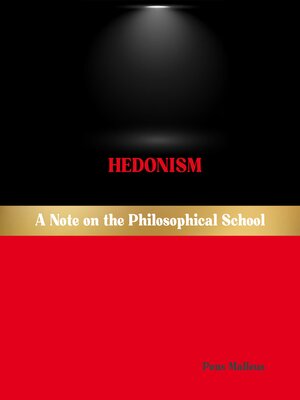Hedonism
audiobook (Unabridged) ∣ A Note on the Philosophical School · Western Philosophical Schools
By Pons Malleus

Sign up to save your library
With an OverDrive account, you can save your favorite libraries for at-a-glance information about availability. Find out more about OverDrive accounts.
Find this title in Libby, the library reading app by OverDrive.



Search for a digital library with this title
Title found at these libraries:
| Library Name | Distance |
|---|---|
| Loading... |
This audiobook is narrated by a digital voice.
Hedonism has long stood as one of the most provocative and misunderstood philosophies in the history of human thought. Often reduced in common discourse to mere indulgence in pleasure or sensual excess, the deeper currents of hedonist philosophy have been neglected, oversimplified, or even vilified. This book seeks to reclaim and clarify the true scope of hedonism as a rich, complex school of thought that has evolved over millennia and continues to spark debate about the very nature of a good life.
At its heart, hedonism proposes a simple yet profound claim: that pleasure is the highest good, and that the pursuit of well-being—however one defines it—lies at the core of ethical living. But what do we mean by "pleasure"? Is it the fleeting satisfaction of the senses, the deeper serenity of a tranquil mind, or something more nuanced altogether? And can a philosophy centered on pleasure provide a serious foundation for moral life, civic virtue, and long-term personal fulfillment? These are the questions that animate this exploration.
From the austere refinement of Epicureanism to the bold affirmations of modern utilitarianism, hedonistic thought has taken many forms. Ancient Greek philosophers like Aristippus of Cyrene advocated for immediate gratification, while Epicurus warned against overindulgence and emphasized mental tranquility over physical delight. Later thinkers—Bentham, Mill, and more recently, contemporary philosophers—have extended hedonistic principles into frameworks for evaluating laws, societies, and public policy. Despite their differences, these perspectives are united by a central claim: that happiness, in some form, is the ultimate aim of human life.







